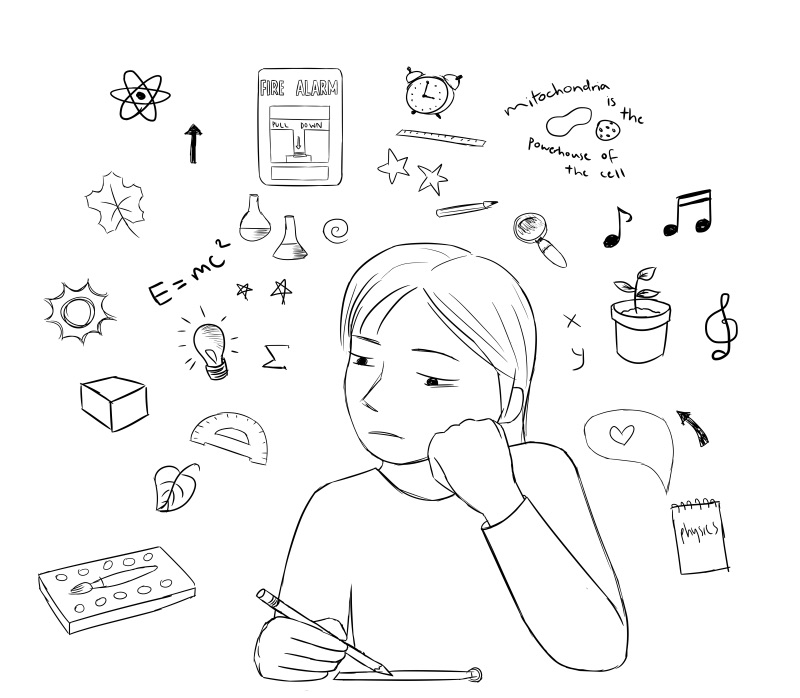When I checked my homework on Schoology, I knew I would not be getting much sleep that night. It wasn’t a math worksheet or research paper that gave me the feeling of dread, but the hand-written annotations required for the novel I was reading for English.
I have always loved reading, but circling every symbol, highlighting each key term and filling notepaper with information in tiny, cramped handwriting takes an inordinate amount of time. And even worse, it makes me question if what I am doing really helps me learn. Should I spend hours on homework that could have taken half an hour if I had just read the material?
Most English classes require annotations for assigned readings and social science courses often assign note-taking for homework. Many teachers make their lessons available online and there are sometimes even assigned student note-takers. So is individual note taking always necessary?
A study from the Association of Psychological Science found that students process information best through handwritten notes, a conclusion reached by several other studies. But not all research concurs with the value placed in note taking — in another study conducted by Mount St. Vincent University, participants who took notes on the location of picture cards did not remember the locations as well as those who simply studied the cards.
Students should take notes because it helps them learn, not because it is required.
In high school, students should be given the individual responsibility of figuring out the best way for them to learn.
For example, Debbie Whitson, who teaches both regular economics and Advanced Placement economics, says that she only requires notes for regular economics, since she figures her AP students have found a note-taking system that works for them.
“It adds a little bit of a carrot for those who might be less organized,” says Whitson about the note taking she does require, which she believes will encourage students to learn more effectively. “There’s so much data that points to even if you never look at your notes again, you remember it better.”
“I find that when I write something down I remember it better,” says Senior Sophia Maroulis, echoing the same sentiment. Maroulis takes personal notes in all of her classes.
However, she supports giving students more independence in their note taking.
“Students have so little room for making [their own] mistakes, which is important for growing,” Maroulis says, “Everything is controlled and graded.”
Most teachers prefer that students handwrite notes instead of type them due to possible distractions. Studies also show the benefits of handwriting, but students who are slow at handwriting may need the speed of typing on a computer.
Studies also show the benefits of handwriting, but students who are slow at handwriting may need the speed of typing on a computer.
Everyone has different preferences for their personal note taking and students should take notes because it helps them learn, not because it is required. I propose a note-taking system that would still emphasize the value of note taking, but not penalize students who do not have the time or inclination to extensively do so. Students who take notes for class, whether in a traditional or unorthodox style, would be rewarded with points added to their grade book (such as a 5/5 or a 10/10) to average out other assignments. Students who do not take notes would not have the note-taking assignments listed in their grade books, but more of their grade would depend on tests, essays and other forms of assessment. That way, if students on occasion do not have time to take the notes, they could go to sleep without losing points next class.
The content we learn and the tools we have in the classroom are always transforming, so it is important that we continue to reconsider the most optimal and least stressful ways for students to learn. Rather than turning in sleep-deprived scribbles on my book, I hope to consistently come to class having understood and enjoyed what I have read.





